The Wonder years - Part 2
Cheesy title- I know. I remember watching the American TV programme "The wonder years" where a grown up Kevin (Fred Savage) talks about his younger self. It was all very nostalgic and heart warming. The film "stand by me" follows a similar theme but the ending gives a sudden jolt of reality as Gordie tells us what happened to his buddies Chris, Teddy and Vern when they grew up.
It's nice to reflect back on being a teenager and young man. It makes me realise how lucky I am today to be healthy and settled. I'd describe the years between 18-26 as chaotic for me. There is too much to cover but i'll cover a few experiences that might help others. I think I've reached a point in my life I am no longer uncomfortable talking about such topics.
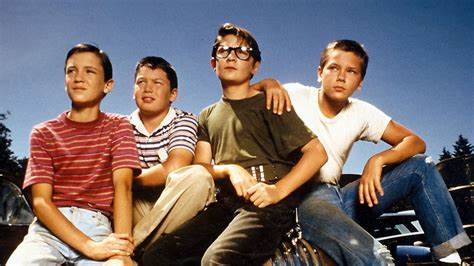
Identity is a hot topic these days. Rightly so. We go through constant evolution as we grow up. Who am I? Where do I fit in? On the surface I was pretty ordinary, a side shed hair style, quiet yet sociable and generally well thought of. Inside though there was a constant storm, an insatiable energy to reinvent and discover. I couldn't sit still. Everything I turned my hand to I became engrossed in and went to extremes. I had to be the best I could be at everything. I found my mind racing, pursuing adventure and mischief. Furiously pouring energy into new hobbies, interests and relationships only to move onto the next thing. Whenever I stopped and took a breath I found myself struggling, like I was scared to look in the mirror and take stock of who I actually was. I had no idea.
Here is a list of interests I've blitzed through:
Lawn bowling: West of Scotland champion and regional champion (I know right?)
Electric guitar: playing in bands at weddings and pubs around Glasgow. I played at my mum's 60th birthday-one of the best memories I have
Martial arts: Filipino Kali, Jeet Kune do, Thai boxing
Tropical fish tank enthusiast
Football: five-a-sides and local teams
Car modification and car clubs: loads of them (for another blog)
Learning to drive: no official lessons- taught by my dad and passed within 6 weeks
Chess
Philosophy: existentialism mainly
Fishing: loch, fishery and sea
All pretty sensible and nice yeah? Well lets cover some of the jobs I did in the wonder years.
I worked as a waiter in several restaurants, including the excellent La Fiorentina owned by my best friend Lio's family. I have such fond memories of these jobs, lots of banter and hilarious encounters. I then moved on to work as a car valeter. Working outside in the blistering cold of East Kilbride (honestly it is freezing) soaked to the bone and I loved it! I don't think I've ever been physically fitter than during that time. I really enjoy getting dirty and smelling of car oil. I've worked on cars ever since in one way or another (again for another blog).
Here's the thing though. What is someone who has "all those brains" doing restoring cars? You should be at university lad, what a waste of talent.
I found manual labour therapeutic. My mind slowed down, I slept better and I felt at ease. I didn't know back then that I wasn't very well. I should probably have realised when I was hospitalised on two occasions over concerns about my mental health. Having driven my parents mad I decided it was time to move out. Most people move down the road, I moved to Belfast.
Why? to get away from myself I reckon and keep things exciting so I didn't have time to reflect. I bought a van at an auction in Belfast and converted it to a mobile car valeting service. Well when I say converted I bolted a loft water storage tank, petrol generator and pressure washer into the back of it. Some advice for anyone thinking of following my lead
1) Insuring a white van in Belfast will cost you more than the van (notorious targets for vandalism during the marching season)
2) Berlingo vans are not designed to carry vast quantities of water. When you turn a corner be prepared to drive on two wheels- this takes practice
3) Petrol generator fumes linger
4) When setting up in any area in Belfast be sure to check with the local paramilitary chaps beforehand. You may find yourself being chased away in a van that goes from 0-60mph...well it never does actually.
A few folk came to see me in Belfast from Glasgow- we all did the famous Black Taxi tour (My brother Jim and I below)

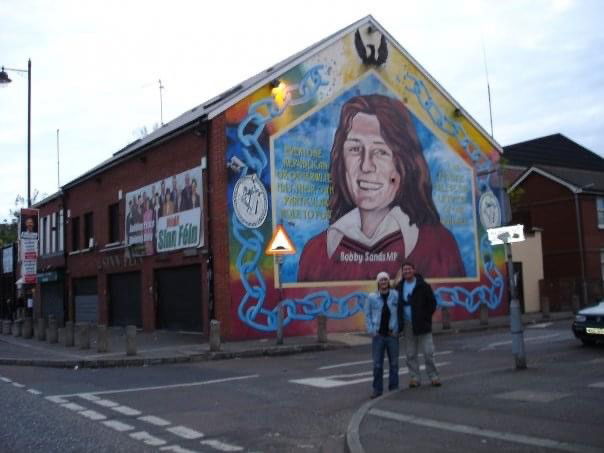
18 months later I returned to Glasgow. So you sorted yourself out Tony? Nope. I was more even more lost by this point and didn't know it. My brother gave me an opportunity to run his pub The Rubaiyat on Glasgow's famous Byres road. With all the best intentions in the world I took on the role as manager and licensee.
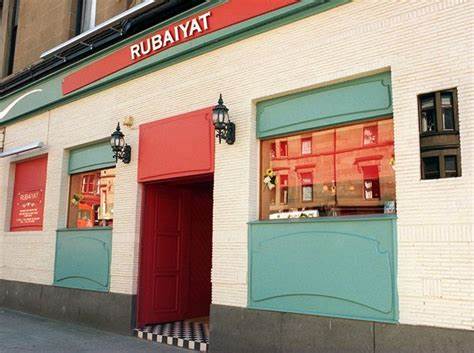
Lets be clear, working in a bar full time is a tough gig. The hours are long and about 80% of the job is akin to being a social worker. The idea of jolly regulars is a nice one in theory, in reality most of them had alcohol dependence and suffered from chronic loneliness.
Alcoholism is an insidious illness. It sneaks up on people. No matter how bad things get, no matter how often someone swears to cut down there is this little voice that returns saying "go on, it won't be as bad as last time". People change their drink "its that whisky that does it", change their company and change their pub. Nothing changes for the alcoholic: one drink is too many and a hundred are not enough.
Rather insightful there Tony. Well with good reason.
Who remembers their first alcoholic drink? We called it a Bevvy in Glasgow. Mine was a half bottle of Thunderbirds wine. I have come to believe that I was born 3 drinks short of feeling at ease in my own skin. When I discovered alcohol I had arrived. My best friend for years. Obsessed with the stuff, the scene and the "harmless fun". Just look at that jolly wee grin below. (Taken in Belfast 2004)
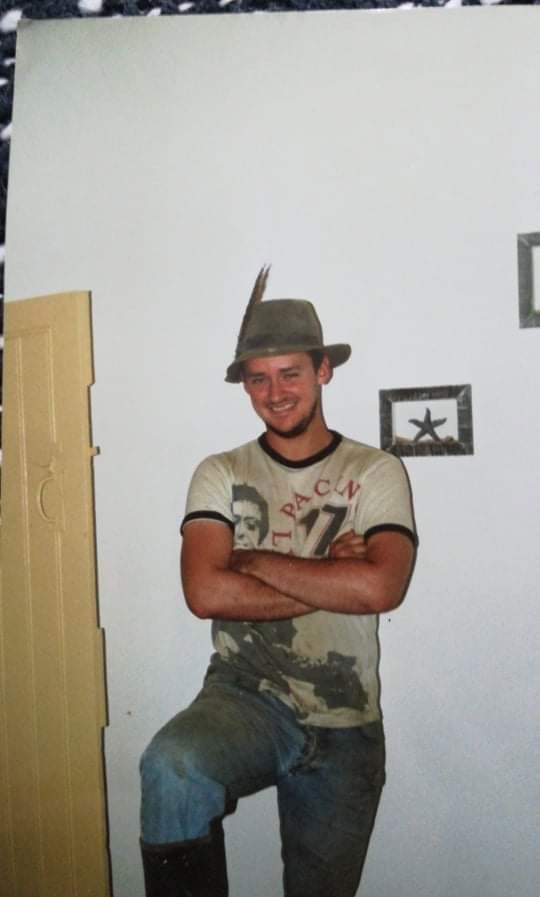
Working in a pub when your have a drink problem is like walking into Willie Wonka's chocolate factory as a kid. Gleaming optics, glistening pint glasses, the smell of disinfectant, everyone talking and no one listening. Pour alcohol into a mind that races and you have the perfect storm for creating a hole in your soul. Absolute carnage. When you are surrounded by carnage however it doesn't feel out of place. When you start living your life in a pub, drinking with folk twice your age and become cut off from the outside world it quickly becomes the norm.
Long story short I failed as a pub licensee. Got barred from all the local pubs and was permanently skint (low on cash). There comes a time however when you can no longer blame other people or circumstances. Sadly some people with addiction never have this "moment of clarity". Having alienated everyone close to me and being ashamed of where I found myself I reached out to fellow addicts for help. Yes I had tried doctors and other agencies. None of them helped despite their best efforts. I still believe that the medical profession does not have an answer for alcoholism but that's another debate altogether.
I am sober today and been for a long long time now. I discovered something very interesting on that journey. My dad suffered from the same malady and we shared our experiences with each other. He died with 40 years of sobriety under his belt. The similarities in our stories were remarkable. Rapidly progressive and utterly hopeless situations- yet both sober, respite from the darkness one day at a time.
About this time I moved back in with my parents and for the first time in my life I sat still and took stock. I grew my hair (why not) and found music again. I had let my brother down and there was a lot of amends to make. More importantly it was time to try and find out who I was.
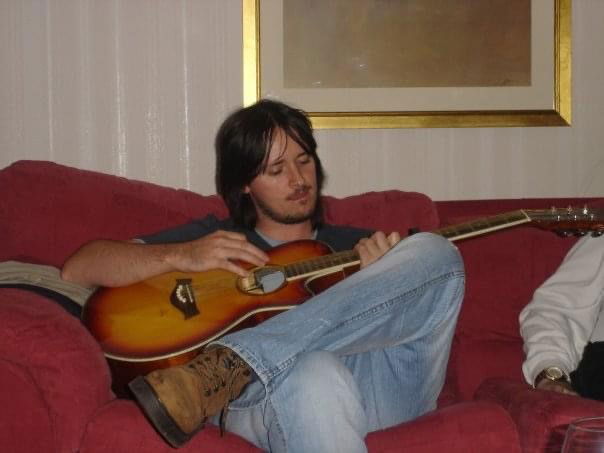
I decided to apply to Glasgow University medical school. I don't have that perfect interview reply to "what made you want to be a doctor". At that time it felt like the right thing to do. I loved science, learning and meeting new people. I went to the the interview and talked about my passion for learning and ability to turn my hand to new challenges. I had a ponytail, a pair of trousers two sizes too big and shoes that squeaked with every step.
I remember the panel very well, what a lovely group of people. Professor Jackie Taylor (current president of RCPSG), Dr Max Field (a legend in my eyes- not just the superhero name) and Professor Sturrock (who wore a white coat to the interview). Maybe there is something to be said about having a bit of life experience before entering a medical degree, I don't know but the interview felt right. I was 26 at the time with a CV that read like a comedy sketch but I also had a burning desire to do something clean and decent with my life.
So I got into the medical school. I haven't touched alcohol in all those years and I have never wanted to. No more need for hospital admissions and no more drama. One of the most wonderful things that has happened is the fact I have never been closer to my brother. My relationship with my mum dad and sister blossomed as well and I was able to care of both my parents when they died. I had discovered who I was and it was such a relief.
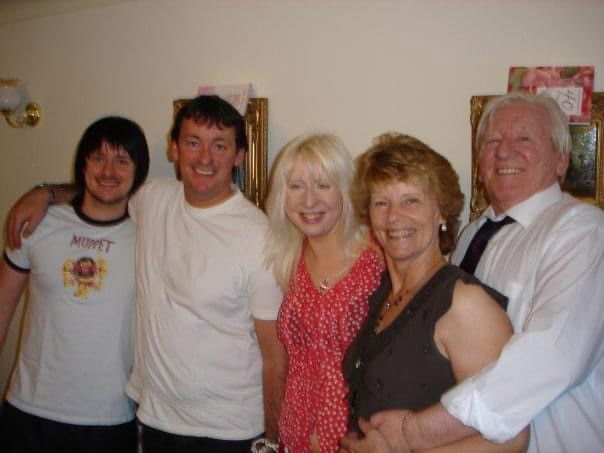
What's all this got to do with palliative care? For me it's everything. Beyond the medications and physiology lies the story of people's lives. Everything that has gone before shapes us and how we interpret the present and future. How we have dealt with adversity in the past can determine how we meet new challenges. We need to be aware of our own personal biases and inherent judgements of people in palliative care. We are all human, we are all flawed and we never know what others are dealing with internally. The most dangerous practice in palliative care for me is assumption. Assuming you know someone or how they will respond will adversely effect their care more often that you realise. When I really needed people with open minds and open arms I found them. No assumptions were made, no judgements just acceptance and a willingness to talk.
When you look at the person in front of you it is so important to remember that you probably know very little of their past lives. Getting to know someone's background may transform how you manage their suffering. Everyone has a story and it is not finished until they die, why should the final chapter of someone's life be any less important than those that have gone before. A story cannot be truly completed without an ending that flows in some context from the preceding life.
An open mind may just help close off that final chapter with the dignity it deserves.
The next blog will focus on how I became interested in palliative care as a junior doctor and an acute medical registrar.